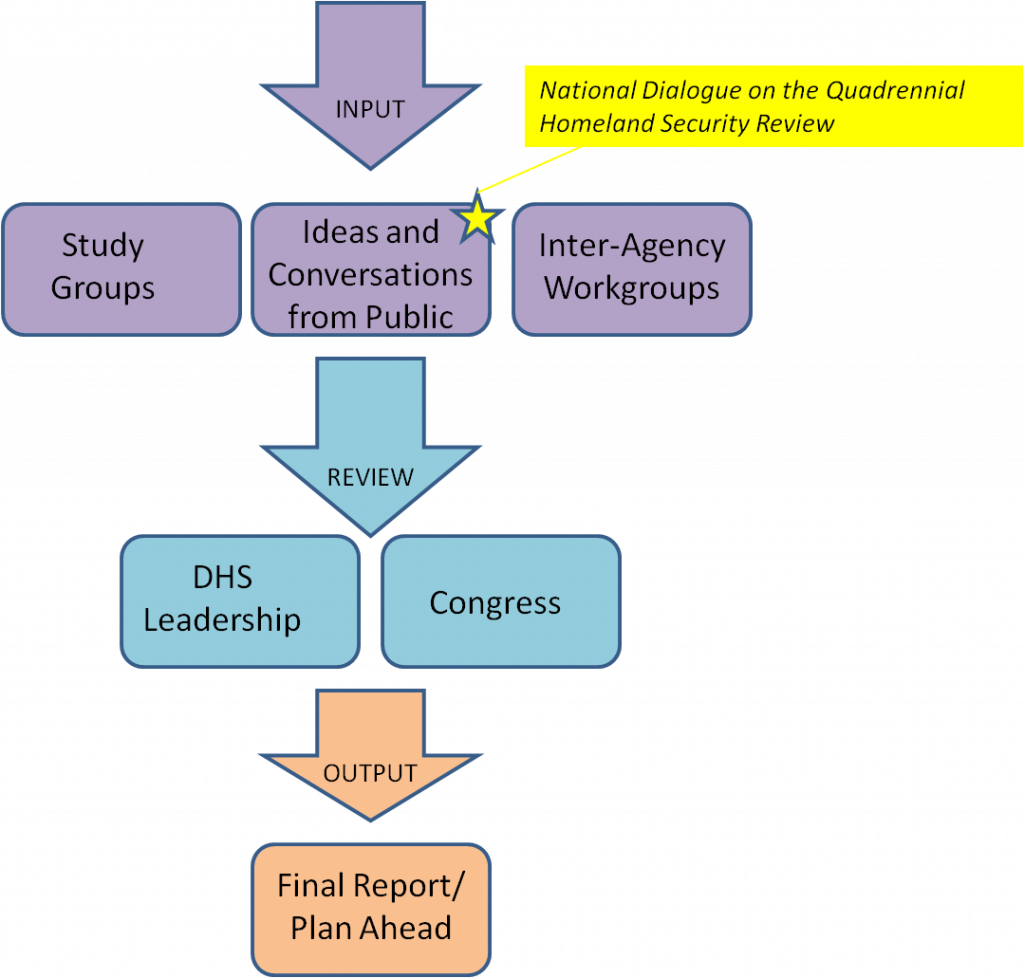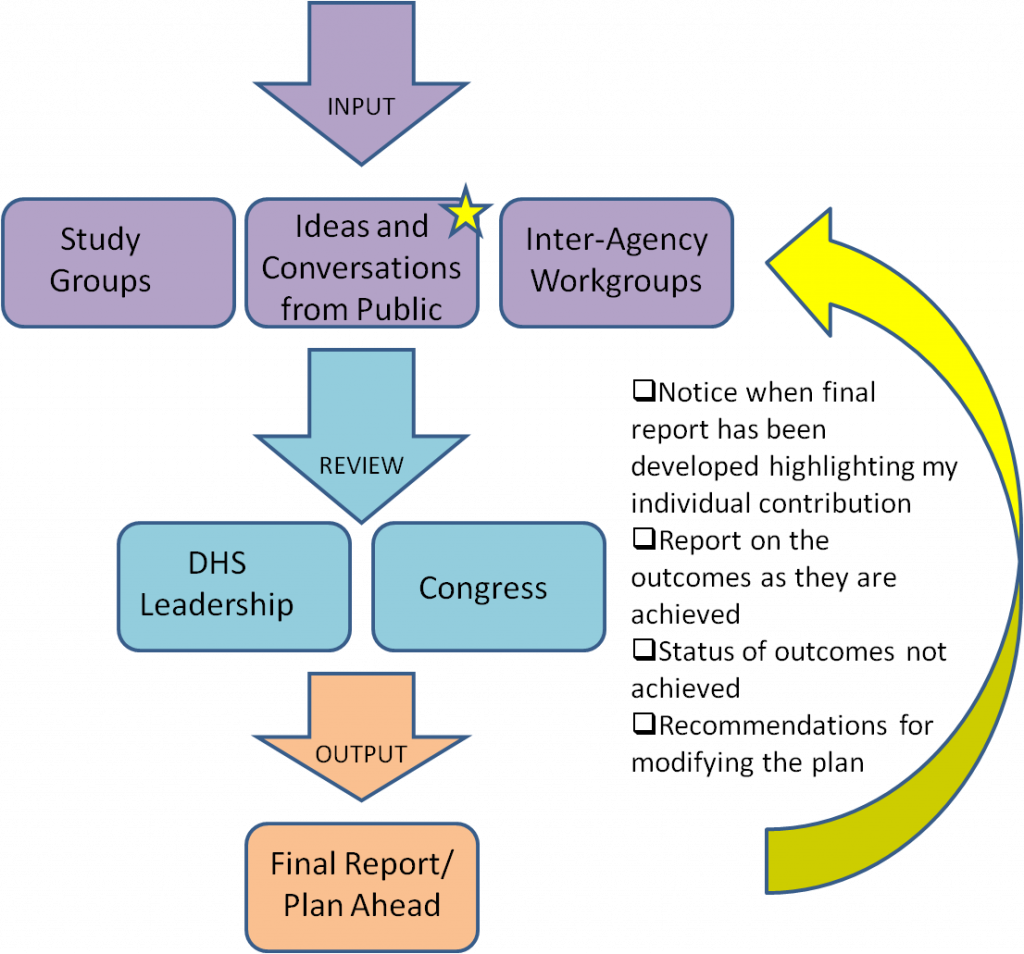The following is a guest post by Tracy Johnson, a member of my team who specializes in developing outreach and communications strategies for clients enhanced by the integration of effective social media tactics. Her citizen-centric view of government permeates her work and she never develops a plan without placing herself in the shoes of her client’s customer. You can find Tracy on Twitter (@tjohns06), on Vimeo, and at Gov2.0 events around DC.
Today, I had the pleasure of participating in a Department of Homeland Security Blogger Round Table—an extension of the National Dialogue on the Quadrennial Homeland Security Review occurring online right now. The Quadrennial Homeland Security Review (QHSR) is a congressionally mandated review of homeland security. The outcome of the review is a final report due to Congress by the end of this year and is intended to act as a guide for the Department of Homeland Security (DHS) and the nation for the next four years.
Earlier this year, upon notice of the mandate, DHS did what most agencies do when tasked by Congress to produce a report—they formed a committee. But this committee (actually, several committees, known as study groups) was not going to settle for government business as usual. DHS is by nature a distributed and decentralized organization whose success depends upon the contributions of Federal, state and local governments, businesses, families, and individuals. Understanding this dynamic, DHS teamed with the National Association of Public Administration to develop a collaborative platform to both recognize and leverage the interdependent relationships between the DHS and all its stakeholders.
Simplified sketch of the QHSR process

How to contribute
What’s different about this approach is not only the inclusion of the public in the discussion, but also the iterative process that’s being undertaken. The National Dialogue on the QSHR was split into three phases, each building on each other, to strategically develop goals, objectives and desired outcomes for DHS.

According to Deputy Assistant Secretary Alan Cohn (who moderated the round table discussion), the hope of this third and final phase of the National Dialogue on the QHSR is to validate the big picture. DHS wants to know whether you think the outcomes defined thus far are appropriate given the goals and objectives. Are the objectives touching on the critical elements of homeland security? Is anything missing? You can provide your answers to these questions and submit other ideas on the third dialogue now through October 4th.
What’s Next?
Secretary Napolitano suggests DHS is charting a path towards a more “ready and resilient nation.” While the concept of being “ready” for future threats is becoming more tangible to the public through efforts such as Ready.gov, Citizen Corps, and Red Cross Ready Rating, the notion of being resilient leaves a lot of room for discussion. The QHSR study groups have called for further definition of resiliency in the coming months and years, and I hope DHS continues to leverage all its stakeholders in the process to achieve that outcome as well as the many others outlined in the QHSR.
Kudos are certainly in order for the DHS for engaging with the public on this effort to-date, but the conversation cannot stop here. Through this process, a community has been developed and needs to be cultivated. Whether participants submitted an idea, rated an idea, or simply read the comments presented, they have formed an informal network of interested parties that should not be ignored once the QHSR is complete.
A feedback loop is necessary for ongoing engagement

Real outcomes of the QHSR
DHS is not only charting a path forward to ensure the security of our homeland, but also is paving the way for other agencies and organizations. With the widespread espousal of web collaboration tools, the government and its partners have the ability and responsibility to provide better customer service to taxpayers. And better customer service starts with listening to your customers. Thank you, DHS, for listening and engaging with your customers. We, the taxpayers, are looking forward to the path ahead and expect to be included along the way.


24 Comments